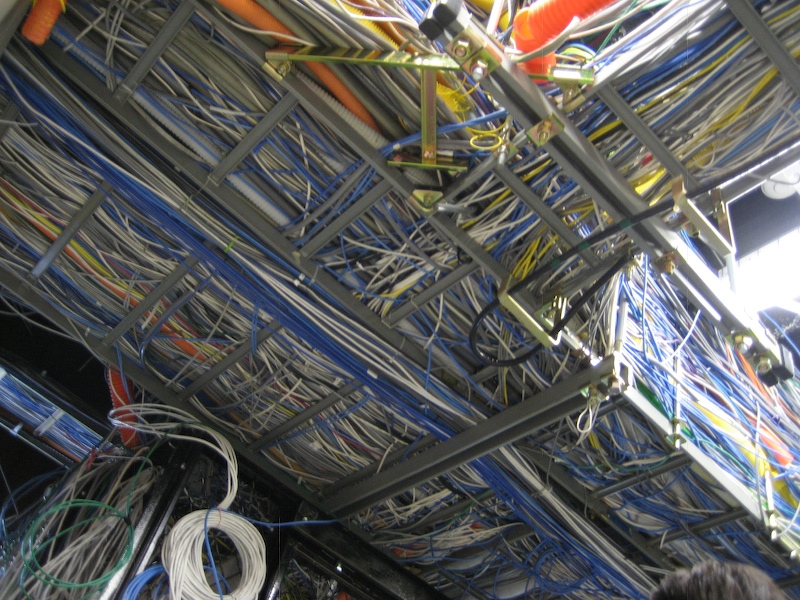There’s a new Internet Service Provider in New York City, including Brooklyn, providing fiber-based Internet, Wolfe. The Seattle-based company announced its presence in New York City on Oct. 16th.
Details include:
- Wolfe‘s high-speed internet services are available to Brooklyn businesses.
- Wolfe‘s arrival does not indicate any new actual infrastructure in the borough.
- The company has purchased wholesale bandwidth and is providing access through three Points-of-Presence, two in Manhattan and one in Westbury, New York.
- It is advertising speeds from 10 Mb/s to 100 Gb/s in New York City (including here).
- If you’re a little lost on the ‘fiber broadband’ concept, just consider it a bigger pipe that’s bringing faster internet speeds, on the whole. Find a fairly helpful explainer from HowStuffWorks here.
Lest anyone get excited about Wolfe‘s arrival indicating new fiber access, it doesn’t.
The company can only provide fiber access to buildings that already have fiber access, though according to Internet Marketing Director Terry Rendall, the company will advocate for potential customers. In an email to Technically Brooklyn, she explained, “I know there is a lack of fiber in Brooklyn. We are looking at ways to help fill that gap. In the meantime, if we had a customer who wanted to use our service but there was no fiber we would work with our providers to see what it would cost to build fiber.”
So there is nothing new under the sun now, but the company might be able to help you get it. It offers customizable packages for different businesses of different kinds. And advocacy isn’t nothing. Speaking out worked for Mike Caprio, who finally got access to Verizon FiOS after complaining on public radio that he couldn’t.
In a discussion with Legal Scholar and Author, Susan Crawford, about New York City’s readiness to keep its residents connected to the rest of the world and to each other in the event of another Sandy-like natural disaster, WNYC’s New Tech City sheds some light on this question. Some takeaways:
- Time Warner Cable, Verizon and Cablevision control Internet access in New York.
- “When we have a disaster, we don’t have any confidence that any of these companies are actually going to make sure that we can continue to communicate with our loved ones, because we have deregulated these giant companies that control Internet access in America,” Crawford said.
- Fiber access, she says, is terrible in Brooklyn and Queens.
- The host Manoush Zomorodi tells Crawford that the complaint she hears most commonly from entrepreneurs about doing business in New York is about internet speeds. Crawford confirms this, saying the Big Apple is getting beat badly in this area by places like Kansas City and Chattanooga.
- Crawford says that every time New York opens up a street, workers should leave behind a channel for installing fiber and other broadband access.
The podcast also highlights another new Internet Service Provider in Red Hook, Brooklyn Fiber. The company is different because it is providing access to businesses in the neighborhood largely using microwave antennae (on the roof of the Fairway Market), rather than cables (though it is using some cables). That may mean that the company is able to provide access to homes that didn’t otherwise have it and make the access in Red Hook more resilient, by providing more ways to get to the Internet.
Technically Brooklyn spoke to Eric Veksler, president of Brooklyn Fiber. The company has been able to connect some buildings with fiber, but only right around Fairway.
Otherwise, it primarily connects customers via their wireless radios. Veksler explained that they have been able to keep their customer base under their total bandwidth, so customers get a constant, steady stream, without the buffering and clogging that some get frustrated with from larger providers. Without right-of-way in city streets, though, they have not yet been able to expand fiber access beyond the waterfront, he said.
As for how microwave antennae compares to copper cable, it has a lot of advantages, but in terms of raw speed numbers, Technically Brooklyn wasn’t able to sort that out. Fiber is ultimately what the city needs, as Susan Crawford told us in an email: “Fiber is the future – no question. Cable can do a lot downstream, but would have to be rebuilt to provide symmetric upstream capacity. And a publishing town like NYC needs upstream.”
Brooklyn Fiber, like Wolfe, is also buying broadband access from a wholesaler. No new access points to the Internet’s trunk have been created for New York, even if new companies get customers to those access points differently or make access more flexible.
In other words, overall Internet access in Brooklyn isn’t any faster this month than it was last month.







